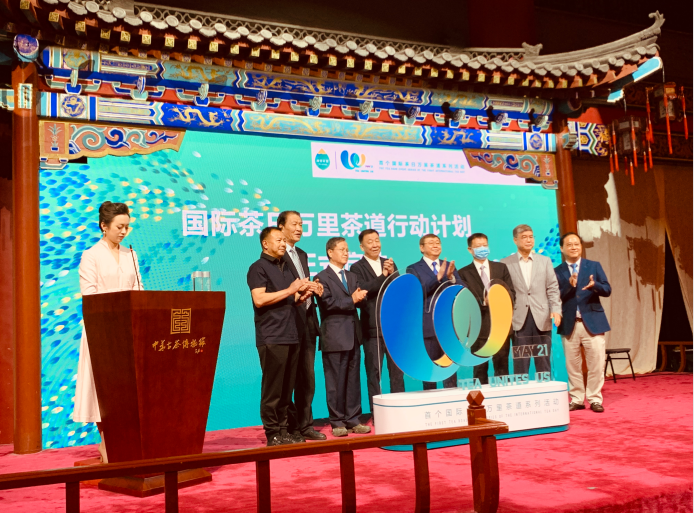
May 21st marks the first "International Tea Day". The "International Tea Day Tea Road series campaign themed ‘ Tea and the World, Mutual Sharing—Tea Brings Us Together’ was opened in Beijing Chinese Ancient Tea Museum. VOSS was designated as the water for this event.
VOSS from Norway has a soft, clear taste and a very low total dissolved solids (TDS). In exploring the source of domestic water, VOSS upholds the stringent standards of its brand. The water has a unique characteristic of high strontium, low sodium, and natural weak alkalinity, all of which can highlight the taste of tea and provide consumers with the best sense of purity.
At the event site, the "First International Tea Day Tea Road (Beijing) Initiative" and the "International Tea Day Tea Road Action Plan" was opened at the same time, which will promote Chinese tea industry’s new development and international cooperation from various aspects such as poverty alleviation, production and marketing, cultural tourism, innovation, research.
Tea, originated in China and gets popular around the world. This series of activities was directed by the China Non-governmental Organization International Exchange Promotion Association, and jointly launched by the Chinese Culture Promotion Society, and the Tea Road (China) Cooperative. In 2019, Reignwood Group planned the Cultural Feast of Calligraphy, Tea Culture and Silk Road Photography” China-Singapore culture event, and VOSS appeared in many tea ceremony performances at the tea cultural exhibition, promoting Chinese tea and tea culture in the countries along the Belt and Road.
On November 27, 2019, the 74th Session of the United Nations General Assembly approved the China’s plan for the establishment of an International Tea Day, and determined May 21 as the "International Tea Day" every year. The resolution of the UN General Assembly pointed out that tea production and processing is the main source of livelihood for millions of households in developing countries and the main means of livelihood for millions of poor households in several least underdeveloped countries. The processing and production of tea could help reduce extreme poverty, empower women, and use terrestrial ecosystems sustainably.


